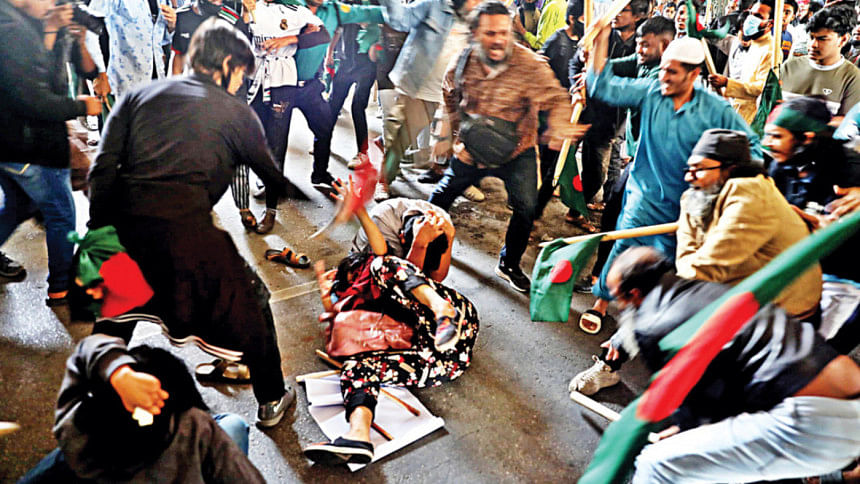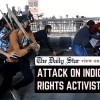Are they even trying? Or have they decided not to act?

It has been over a month since adivasi students were brutally attacked while protesting the removal of the word "Adivasi" from textbooks. A full month.
And yet, despite the arrest of four individuals, the government's response has been rather meek, as if the incumbent needs to be reminded of its commitment to justice.
Two suspects were arrested on the very night of the attack; two more were detained recently. And then, nothing. No further arrests. Nor any meaningful investigation. And in that silence, the dark truth becomes increasingly more evident. In Bangladesh, justice for the marginalised is not a right; it is an afterthought.
Against this backdrop, Chief Adviser Prof Muhammad Yunus's words at the DC conference on Sunday leaves much to be done.
The globally acclaimed Nobel peace laureate spoke of protecting women, children, and minority communities. "The whole world watches how we behave with them… It is our duty to provide security to all citizens," he said.
He also called on the minority people to enjoy their rights as citizens since the government is ready to serve them.
The attack on adivasi students in front of the National Curriculum and Textbook Board (NCTB) office on January 15, was not a random act of violence—it was a message. A message that dissent will be met with brutality, that those who demand their rights will be silenced with fists, batons, and bloodshed. More so if they are not the right kind of Bangladeshis.
Eyewitnesses and video footage confirm the deliberate, planned nature of the attack. The students were not violent. They did not provoke. They only asked to be heard.
And yet, they were met with violence.
If the government is serious about justice, then why have there been no further arrests in this particular incident? Why is there no progress in the investigation? Why are the real perpetrators—particularly those linked to the so-called "Students for Sovereignty" platform—still walking free?
Even more outrageously, this platform is still actively operating on social media—spreading its propaganda, mobilising support, and carrying on as if nothing happened. Their activities are in plain sight, yet law enforcers somehow cannot find them.
As the weeks drag on, it is clear that this administration, like its predecessors, is no different and delivers justice selective. The marginalised still remain voiceless.
The message is clear. If you belong to a marginalised community, your suffering does not matter. Your rights are negotiable, your dignity expendable.
Are we to believe that Bangladesh's security apparatus—so quick to suppress opposition voices—suddenly lacks the ability to track down those who openly instigated and carried out violence? Or is it simply a matter of choosing not to act?

 For all latest news, follow The Daily Star's Google News channel.
For all latest news, follow The Daily Star's Google News channel. 







Comments